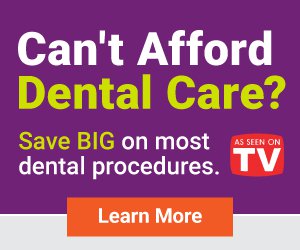10 Signs It’s Time to Schedule a Dentist Visit

Everyone wants to enjoy their life to the utmost, and having a healthy body is a key piece of that puzzle.
When it comes to taking care of your body and maintaining your health, there are a lot of things to consider. From diet and exercise to doctor appointments and visits to the dentist, juggling it all can be a challenge.
How do you know that it’s time to change your lifestyle or see a specialist?
When it comes to the dentist, there are a handful of signals that can indicate it’s time to schedule an appointment. If you notice any of these signs, consider calling your dentist—your teeth and overall health and wellness–will thank you.
KEY TAKEAWAYS
- Regular dental check-ups are crucial for maintaining oral health and overall health and wellness–addressing potential issues before they worsen.
- Signs indicating it's time to schedule a dentist visit include: not seeing a dentist in a while, experiencing tooth pain, chronic bad breath, broken teeth, sensitivity to temperature, inflamed gums, loose teeth, dry mouth, mouth bumps, sores and toothaches.
- Ignoring dental issues can lead to more severe problems down the line, making it important to address concerns promptly.
- Listening to your body's red flags and acting promptly can help maintain optimal oral health and prevent more severe dental problems in the future.
- Discount savings plans or discount dental plans can help make routine dental visits more affordable and encourage proactive dental care.
How to Know When It’s Time to Go to the Dentist
Dental concerns can fly under the radar and sneak up on you. They can also be easy to push to the back burner until they worsen. If you want to take good care of your teeth, looking out for red flags and responding to them quickly is the best approach.
Visiting the dentist regularly and erring on the side of early prevention is important for your oral health, but it’s also crucial for your overall health, too. Dental issues can often lead to, or be signs of, greater health problems.
Allowing your dental hygiene to slide can mean sacrificing your physical health and wellness. So, how can you tell when it’s time to go to the dentist?
There are some standout indicators that you need to call your dentist and arrange an appointment.
Read on for the top 10 reasons to go to the dentist.
You Haven’t Seen a Dentist in a While
One of the best ways to preserve your health—including that of your teeth—is to be preemptive. When it comes to teeth, that means attending regular appointments where your dentist can clean your teeth, evaluate your oral health and identify any potential problems before they worsen. If there are concerns, they can help you address them early.
One might wonder how long is too long between visits. Though the answer is different for everyone based on their individual needs, conditions, and dental situations, it is recommended that you go to the dentist every six months for cleanings, evaluations, and general maintenance. If it has been over six months, you should strongly consider scheduling an appointment. While the expense may be daunting, there are discount dental plans that can make these routine visits more affordable.
You’re Experiencing Tooth Pain
Your body will often let you know when something isn’t quite right. Your teeth are no different—if they start to hurt, it’s time to visit your dentist. There are, of course, degrees of tooth pain and toothache. It can be tempting to ignore the pain initially, especially if it isn’t intense, but this is rarely a good idea. Instead, listen to your body and visit your dentist as soon as you notice your toothache.
Don’t let tooth pain scare you, either. It is not always an indication that something serious is going on; it may be a very minor issue or no issue at all. The important thing is that your dentist can evaluate your oral health and use their expertise to pinpoint the potential cause of the pain, as well as a solution before it develops into something more pressing.
Chronic Bad Breath
No one enjoys having bad breath, and it can be frustrating when your breath seems to be chronically bad. Before you start hoarding breath mints or covering your mouth when you talk to your crush, consider calling your dentist. Often, bad breath—especially of the chronic variety—can be an indicator of a dental problem.
A common culprit is gum disease, which is an oral health concern that your dentist can help treat and resolve. If you (or someone else) notice that your breath has consistently smelled a little funky, it’s a sign to visit your dentist.
You Have a Broken Tooth (or Teeth)
Many people consider broken teeth to be an aesthetic issue. While they may not be ideal visually, there is a tendency to live with them so long as they don’t hurt. The mindset is understandable, but this approach is not ideal long-term, as cracked or broken teeth can develop and contribute to more severe dental issues in the future.
From other teeth shifting and causing misalignments to infections developing, broken teeth are a recipe for trouble if they are left unattended. If the cost of correcting them is a deterrent, using a discount savings plan can help you address your broken teeth with your dentist. At the end of the day, broken teeth are a dental red flag you shouldn’t ignore.
Sensitivity to Temperature
A common dental complaint that can be a sign you should visit your dentist is sensitivity to temperature. For example, experiencing discomfort when drinking a hot beverage or enjoying a bowl of ice cream shouldn’t be shrugged off. This sensitivity could be signaling that something isn’t quite right.
This particular red flag could signal a loss of your protective enamel layer. This could be indicative of cavities, gum disease, tooth decay and other dental problems. Giving your dentist an opportunity to evaluate your discomfort and diagnose the cause could save you from developing serious issues and restore your comfort when enjoying foods with a spectrum of temperatures.
Your Gums are Swollen or Bleeding
Dentists do far more than perform teeth cleanings and fill cavities. When it comes to oral health and hygiene, teeth are only part of the equation. Taking care of your gums is just as important as ensuring your teeth are in good shape. If you notice that your gums are red, swollen or bleeding, a trip to the dentist is in store.
Swollen gums can be a result of gingivitis, which is a common gum disease. Even when the symptoms, like inflamed gums, are mild, it is important to take them seriously and reach out to your dentist.
It’s also possible you’re dealing with a receding gum line, which could result in sensitive gums, loose teeth, visible roots, bleeding, swelling and more.
If left untreated, you could be looking at a more severe issue, such as periodontitis. Why does periodontitis require more attention?
When left untreated, it can lead to tooth loss and much more serious procedures like extractions, dentures and even implants. All of these issues can cost thousands of dollars. Early prevention is one of the best and simplest ways to avoid costly procedures.
You Notice Loose Teeth
A loose tooth can be cute as a kid and indicate a future visit from the tooth fairy. As an adult, loose teeth are a dental red flag that should encourage you to schedule a dentist appointment. If it’s loose as a result of injury, it’s important to get the damage evaluated and a plan of action developed. If you have loose teeth without an obvious origin, it’s even more important to visit your dentist.
Loose teeth can be a sign of weakened bone tissue, bruxism (teeth grinding) and even periodontitis. All of these potential causes are serious and worth a trip to the dentist. If ignored, they can get worse and cause more problems. The longer they are left untreated, the more difficult it is to correct the issues in the long term.
Dry Mouth is an Issue
While everyone experiences a dry mouth on occasion, a chronically dry mouth may be a sign that you should go to the dentist. Oftentimes, this sensation of having a dry mouth is accompanied by other symptoms, like thick saliva and bad breath. If you notice that your mouth is frequently dry or notice a dry mouth in conjunction with possible symptoms, it’s time to call your dentist.
There are a myriad of potential causes for dry mouth, ranging from side effects from medications to lifestyle choices. Your dentist can help you determine what might be at the root of the issue and teach you how to manage it. Proper oral hygiene, being selective in your diet and changing certain lifestyle factors can all help.
Your Mouth has Bumps or Sores
Any time something unusual presents in or on your mouth, you should take notice. Anomalies like bumps and sores are particularly concerning, as they can indicate infection, irritation or certain diseases. Before you let your imagination run wild with dire possibilities, remember that contacting your dentist early is key to ensuring that any problems are caught quickly and dealt with swiftly.
While the potential issues (and their expenses) can be daunting, a good discount dental plan can alleviate some of the stress. Any opportunity to remove reasons not to do the right thing by visiting the dentist is worth taking, especially if you notice the red flag of bumps or sores in your mouth.
Toothaches Spell Trouble
If you’ve ever experienced a toothache, you know that the pain can be aggressive. However, even a mild toothache deserves your attention. A toothache of any severity should be taken seriously and should be the signal you need to see your dentist. With a variety of possible causes, getting to the root of the issue is essential.
In addition to diagnosing the cause and ensuring it doesn’t progress, your dentist can provide relief from the toothache. Consider it a short-term and long-term victory for your oral and overall health.
Discount Savings Plans for Dental Visits
Taking care of your teeth and gums is a key piece of the well-being puzzle. It’s best to be preemptive by focusing on maintaining healthy teeth and gums, practicing good oral hygiene, and seeing your dentist on a regular basis. Unfortunately, things aren’t always ideal. Life gets in the way, accidents happen and dental emergencies occur.
Investing in discount dental savings plans or discount dental plans can give you the encouragement and security you need to see your dentist when one of the signs mentioned here compels you to. When you listen to your body’s red flags and act accordingly, you can ensure that your teeth stay in top shape.
Need to see a dentist? Activate your Carefree Dental discount plan immediately to help you save 15-50%* at the dentist.
Check to see if your dentist is a participating provider in our discount provider network.
*Per visit, in most instances, on services. Actual costs and savings vary by provider, service and geographical area.
The Carefree Dental blog is not meant to be a substitute for professional medical advice, diagnosis, or treatment. The text and pictures within the content are intended for information purposes only. Readers should consult with a licensed dentist or healthcare professional before seeking treatment.
The Carefree Dental Card is not insurance and Carefree Dental is not an insurance provider.





